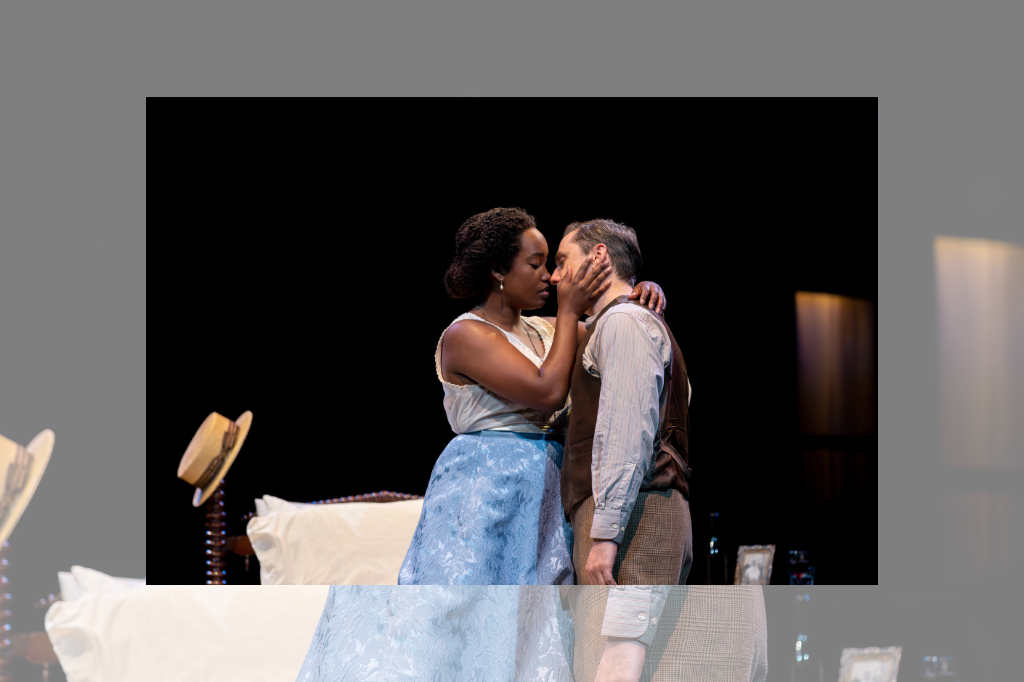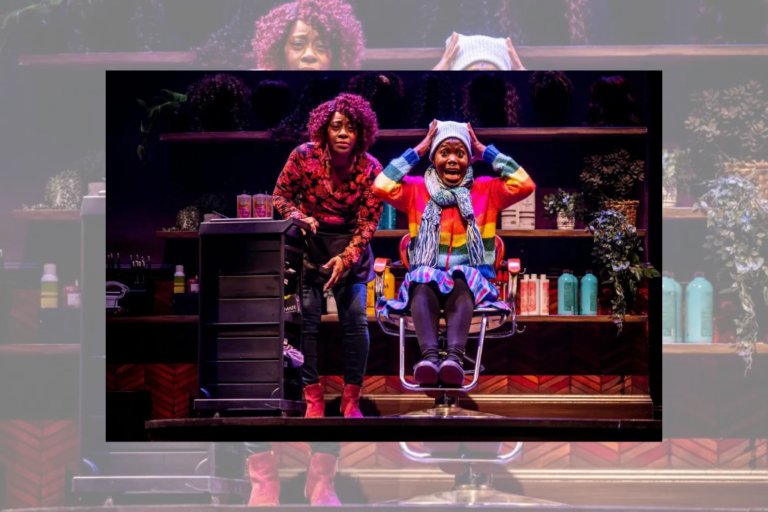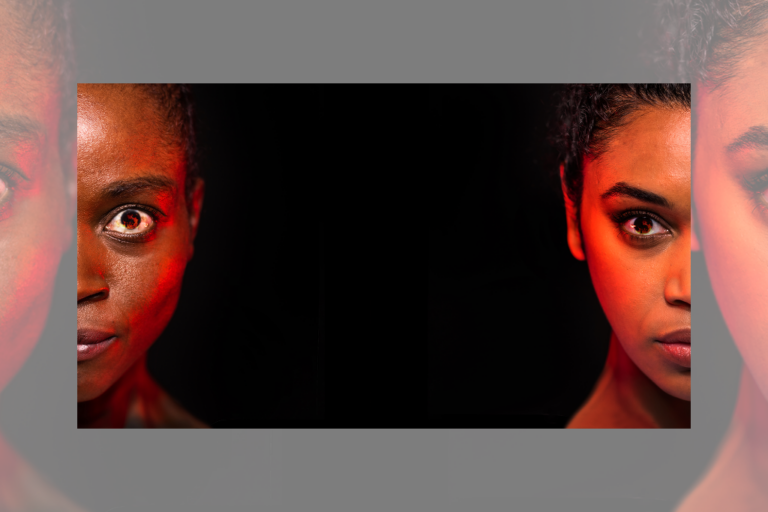REVIEW: Wedding Band at the Stratford Festival
It’s Loving vs. Virginia: the play.
This piece, centreing an interracial couple, takes place 49 years before the historic bill allowing interracial marriage in the US was passed, serving as a reminder that such unions were once outlawed. It is also a reminder of why some folks frown at interracial marriage even today.
Written in 1973 and taking place in 1918, Wedding Band is ultimately a play about love and community.
Audiences follow Julia (Antonette Rudder) after she moves into a backyard property due to her deep, not so dark secret: her white lover Herman (Cyrus Lane). She has had to move several times after people have found out about their relationship, which at this moment in history is illegal.
The setting, designed by Richard Morris Jr. with associate set designer Lorenzo Savoini and assistant set designer Freddy Van Camp, is this outdoor area, with lots of open space for the characters to move around. The back doors of Julia’s neighbours, with her room in the middle slot, serve as a backdrop. While everyone else’s homes are private, audiences see right into Julia’s room — that physical transparency is a fantastic symbol of how everyone is always right in Julia’s business.
The commotion of her neighbours wakes Julia up and the women bombard her with questions. Although they are loud, Julia is happy to be surrounded by a community of Black mothers. On the compound live Lula (Joella Crichton) and her adopted son Nelson (Micah Woods); Mattie (Ijeoma Emesowum) and her daughter Teeta (alternatively played by Ariel Ollivierre, Aliya Anthony, and Aria Anthony); as well as the Landlady (Liza Huget). Along with the audience, Julia learns about each of the women and the things they have been through in their lives. Feeling like a part of the group, Julia shares her struggles around her illicit relationship, but the confession goes as it often does: things get awkward and the ladies exit into their homes.
The piece has a fine balance of humour and truth, as it navigates what it means to be an interracial couple in the American South. The full title of the play is Wedding Band: A Love/Hate Story in Black and White, referring not only to the races of the main characters but also how people saw one another in that time and place. Wedding Band has a big story to tell, especially as it tackles societal issues that have not been resolved. There are massive and complex themes within the play, not only dealing with racism, but also misogynoir, Christianity, and Black womanhood.
The directorial team of Sam White and Chantelle Han 한 송 이 (assistant director) do a great job of representing polarized opinions: the actors brilliantly convey the issues as black and white, especially when Julia and Herman argue. They speak over one another, his side vs. her side, neither of them internalizing what the other is saying, and neither of them recognizing how the differing perspectives inform one another. Both actors give brilliant performances, most notably Rudder, as her character comes to terms with the thought of possibly having wasted the past ten years of her life.
I don’t know if I was particularly rooting for Julia and Herman (I was definitely rooting for Julia), but I did want them to listen to one another. Love and community are pitted against each other in this piece when, ideally, those are what bring people together. Herman loves Julia against all odds — those odds being his incredibly racist mother and less racist sister. Though Herman has been shamed within his family, his mother would rather die than let others know he is with a Black woman, whereas Julia has had to sacrifice her community.
When Herman comes to visit Julia in the new home he promises her they will be together, and that they will get married. Unfortunately for all parties, Herman falls ill, and the Landlady is scared to call the police out of fear of the repercussions of having a white man fall sick on her property. Adding to the misfortune, Fanny calls for Herman’s Mother and sister Annabelle (Maev Beaty) to come get him.
The second half of the play is capital-D Dramatic, with a very intense name calling session, to put it kindly, between Julia and Herman’s mother (who is otherwise unnamed and played by Lucy Peacock). She does everything within her power to get Herman out of Julia’s house, but he comes back to Julia as she is the only one who can comfort him.
At many points in the play an action results in life or death. The work shows us two parallel cases: in one, a white mother would rather let her child die then have the doctor come to see him inside a Black-owned home. In the other, a Black mother begs on her hands and knees for the life of her child, so that he is not lynched for disrespecting a white man. Is pride more important than a life? The answer ends up being dependent on the individual.
The piece is not a “love triumphs” story, because sometimes love just isn’t worth it. Even without the racism, ten years is too long to wait around for someone, even if it’s still illegal. Wedding Band had me invested in the story and in each of their characters. Due to its sociopolitical stakes the show had me thinking about what it means to be in an interracial relationship in 2023, and if anything but the laws have really changed.
Wedding Band is playing in the Tom Patterson Theatre at the Stratford Festival through October 1. Tickets are available here.
Intermission reviews are independent and unrelated to Intermission’s partnered content. Learn more about Intermission’s partnership model here.















Comments